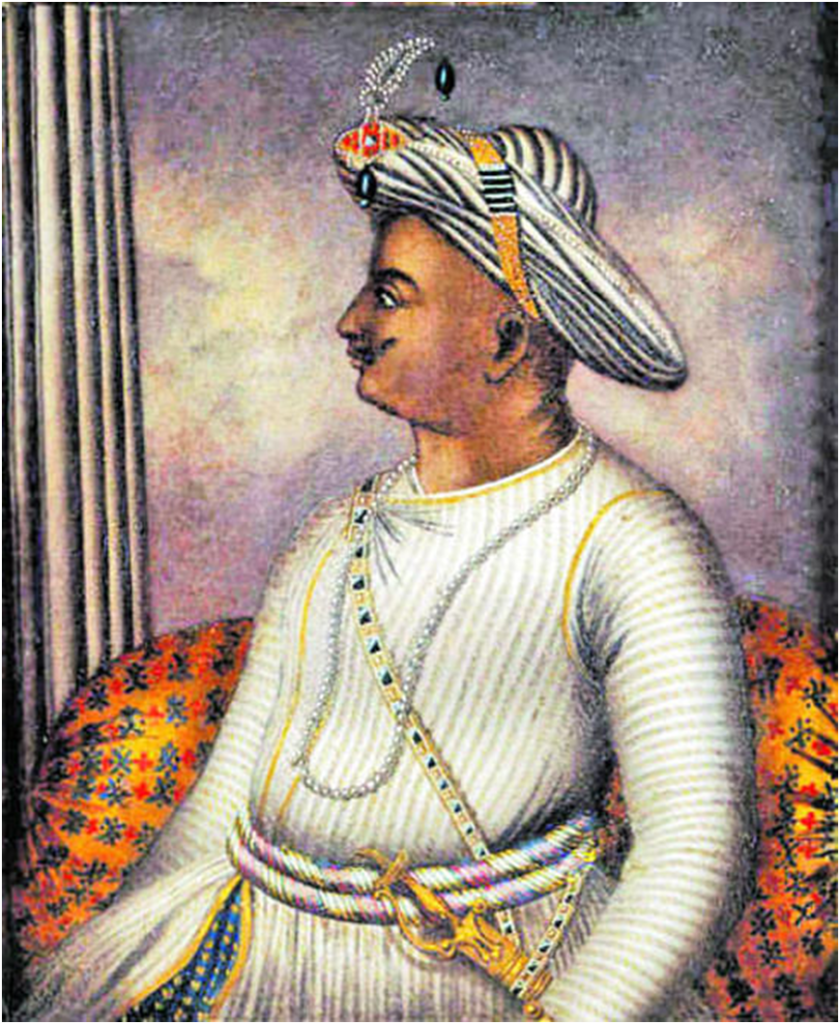
֍ Tipu Sultan was born in November 1750 to Haidar Ali and Fatima.
֍ A well-educated man, he could freely converse in Arabic, Persian, Kanarese, and Urdu.
֍ Tipu was a great warrior (he was known as the ‘Tiger of Mysore’) and gave maximum care to the raising and maintenance of an efficient military force.
֍ He organised his army on the European model with Persian words of command.
֍ Though he took the help of the French officers to train his soldiers, he never allowed them (French) to develop into a pressure group.
֍ Like his father, Tipu realised the importance of a naval force. In 1796, he set up a Board of Admiralty and planned for a fleet of 22 battleships and 20 large frigates. Three dockyards were established at Mangalore , Wajedabad, and Molidabad. However, his plans did not fructify.
֍ Tipu was a patron of science and technology. He is credited as the ‘pioneer of rocket technology’ in India. He wrote a military manual explaining the operation of rockets.
֍ He was also a pioneer in introducing sericulture to the Mysore State.
֍ Tipu was a great lover of democracy and a great diplomat.
֍ He gave his support to the French soldiers at Seringapatam in setting up a Jacobin Club in 1797. He ordered a salute of 2,300 cannons and 500 rockets to celebrate the occasion. Tipu himself became
a member of the Jacobin Club and allowed himself to be called Citizen Tipu.
֍ He planted the Tree of Liberty at Seringapatam.
֍ Some historians have depicted Tipu as a bigoted monarch. This was the main view of colonial historians. This estimation of the sultan is not fully correct. It is true that he crushed the Hindu Coorgs and Nairs. But at the same time he also punished the Muslim Moplahs when they defied his authority.
֍ Though he is reported to have demolished temples in Kerala when he conquered places there, Tipu is also known to have protected Hindu temples within his own kingdom.
֍ He sanctioned funds for the repair of the Sringeri Temple and installation of the idol of Goddess Sarada (the idol had been damaged during a Maratha raid in 1791).
֍ It is necessary not to judge characters of the past with modern yardsticks of secularism and democracy.
֍ Tipu despised the use of palanquins and described them as fit only for use of women and the disabled.
֍ He is also credited with beginning capitalist development at a time when feudalism was prevalent.
֍ Tipu was a man representing multiple traditions.
Must read: What were the causes of British success in India?
External link: https://en.wikipedia.org/wiki/Tipu_Sultan
